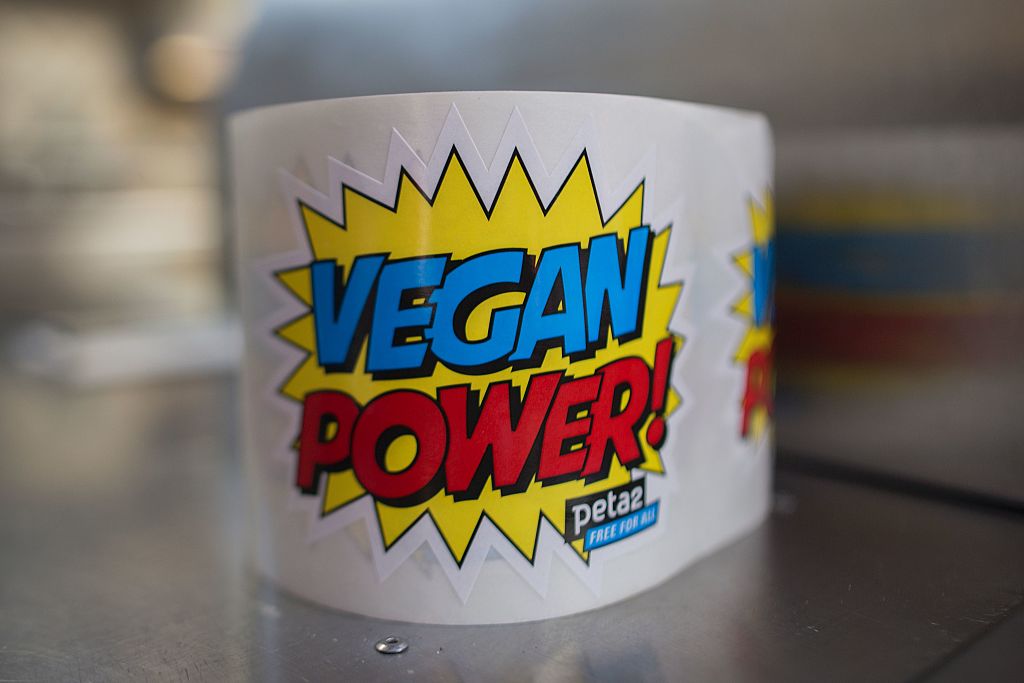“How do you know if someone is a vegan?” goes the old joke, “Don’t worry, they’ll tell you.”
Veganism has one of the worst reps of any kind of -ism. No one likes a vegan. I am a vegan and even I can’t stand vegans. They are superior and self-righteous. Friends who invite you over for dinner loathe you; restaurants loathe you; and everyone else loathes you too because you are implicitly judging them with your lame carrot and hummus sandwich while they go big on a bucket of chicken wings.
Needless to say, I am not in the vegan gig for the cachet of being a vegan. And for the record, I am no animal lover either. I will not coochy-coo over your ratty, barky, small dog and I do not think your inane, slobbering, big dog is a Good Boy. I am as apathetic toward cats, in all their anus-licking, own-vomit-eating glory, as they are toward me. The cause of vegans is not helped by vegan animal-love, which makes vegans appear soft and out of touch with the realities of the natural world.
This colossal image problem for vegans, though, undermines the serious subject matter at stake: the welfare of the more than one billion land animals we kill for food every year in Britain. The undeniable truth is that the vast majority of meat and animal produce that we consume comes from a place of quite incredible cruelty and suffering, the scale of which history has never seen before.
US-style intensive factory farms are pervading the globe, including Britain. The inhumane, weird conditions within them have been roundly condemned by every animal welfare organisation that there is. The lives and deaths of the creatures that live and die there are the stuff of nightmares. Pigs with gaping sores going mad because of their cramped environments; chicks having their nerve-filled beaks sliced off without anaesthetic (neatly called “debeaking” in the industry); dairy cows being artificially inseminated with metal rods and then, after a nine month gestation period, having their calves taken away from them at birth. It does not take a huge leap of empathy to know that these common practices are utterly wrong and the hell we have created for living, breathing animals in the name of efficiency and profit-maximising is morally unacceptable.
As a society we wilfully choose to ignore the facts because they are so inconvenient. We like eggs benedict, steak béarnaise and chicken nuggets too much. Eating is a deeply personal and ritualistic activity and to be preached at by a Bloody Vegan is an affront to good manners and good taste. What could possibly be wrong with a roast dinner? “I could never be a vegan! I love bacon butties too much!!” Stop being so picky and eat your meat, for crying out loud.
Eating animals and their produce is an engrained activity for almost all of us. To snub it on ethical grounds sounds violently extreme, ridiculous even. The fact is though that each of our small indulgences supports the extremities of intensive farming, one minor transaction at a time. A ham sandwich here, a cappuccino there, all snowballing into a terrifying, multi-billion pound industry of abject misery.
It is in some way the exact inverse of the environment problem: where with global warming each individual action has the most indescribably marginal effect on a slow moving, macro disaster (my return flight to New York is not in itself going to raise the levels of the oceans), with factory farming our actions have a disastrous effect on a very micro scale.
The marketing of the food industry is as cynical as it is pervasive, reinforcing an outmoded, Arcadian view of the countryside. “Free range” as a label for eggs evokes a wholesome picture of portly, individually-named rare breed chickens pecking around a small farm in a bucolic setting. The reality, of course, is very different and life for these animals is only marginally better than that of their caged counterparts. The very words meat, fish and dairy conjure up images that are so much more hearty and appealing than words like vegan, soya or rice milk, which sound tortured and hand-wringing. Marketeers, one; whiny vegans, nil.
The unbridled ire that the vegan movement elicits is also pretty bizarre. Take the recent well-publicised email from the (now former) editor of Waitrose Food magazine laying into vegans. Gandhi is credited as having said of social movements: “First they ignore you, then they laugh at you, then they fight you, then you win.” It feels as though veganism is moving from phase two to phase three. The good news is that the final phase will come soon: eventually the truth will out. Younger generations are already taking a cold, hard look at the facts and voting with their feet in their millions. Veganism is dramatically on the up.
The author of the best-seller Sapiens, Yuval Noah Harari, describes the lives and deaths of farm animals as “the greatest crime in human history.” The scale of the horror is almost unimaginable and, if we’re honest with ourselves, deep down we all know it is going on. Yet we choose not to look because meat is so delicious. As consumers and as intelligent, compassionate animals at the top of the food chain it is our responsibility to put a stop to an industry that is so manifestly broken, cruel and self-serving. Shame on us for having let it get as far as it has.






Comments